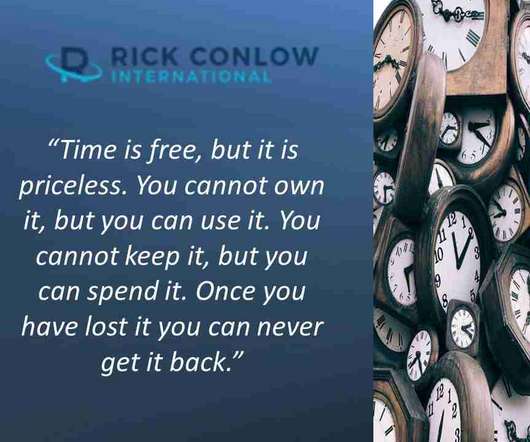Managing Meetings: How to Drive Productivity and Success
Tom Spencer
APRIL 12, 2024
Starting and ending on time is a mark of professionalism and demonstrates an appreciation for the value of everyone’s time. For longer meetings, consider incorporating breaks to maintain focus and energy levels. He studied Industrial and Labor Relations at Cornell University.























Let's personalize your content